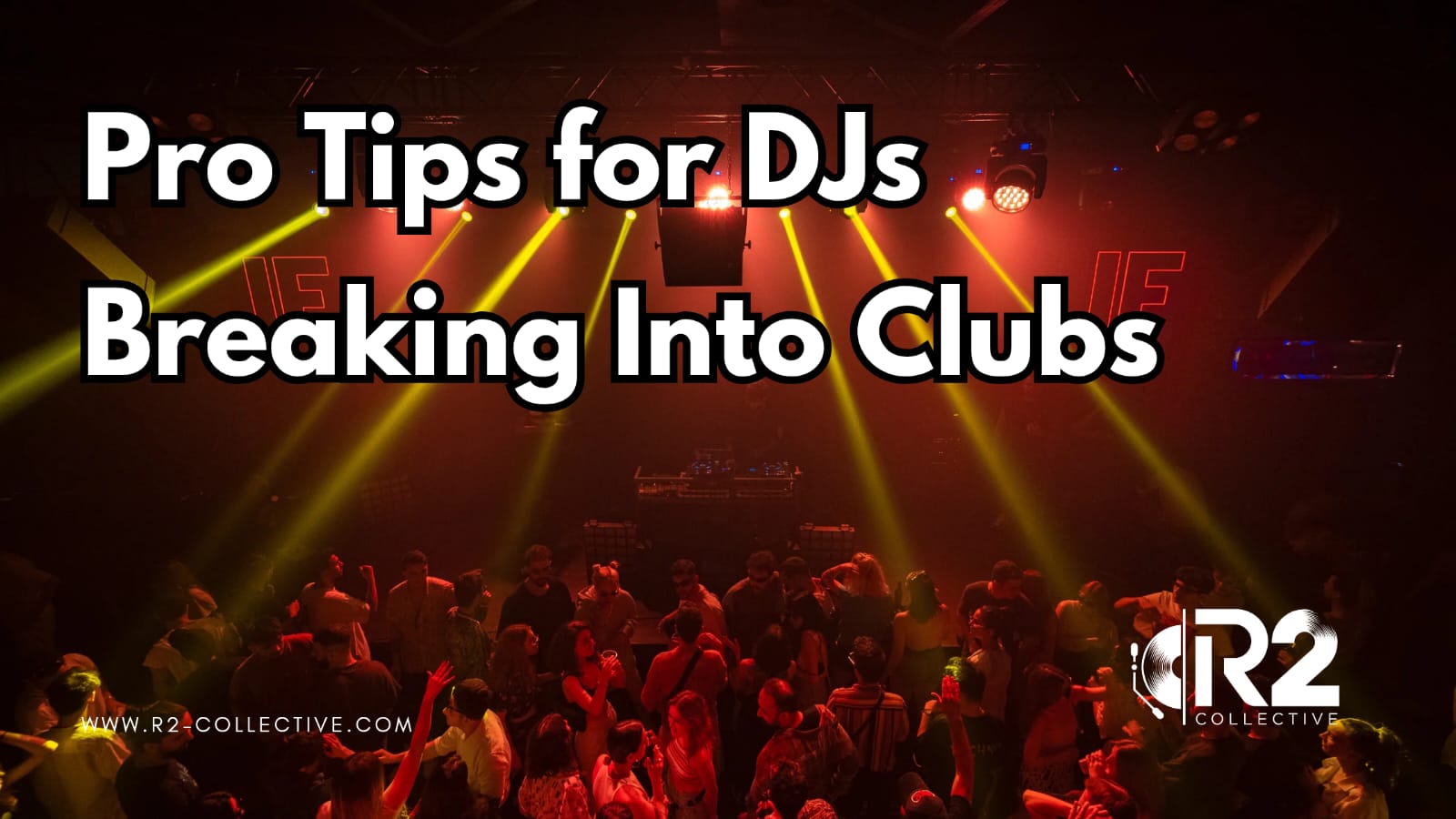Do you want to know how to get DJ gigs at clubs? Maybe you’ve practised your mixes for months, built a music library that reflects your style, and now you’re ready to step into the booth where the top club DJs perform. The club scene can feel like a closed circle, but with the right approach, you can break in and start booking DJ services at venues that matter.
In this guide, you’ll learn the exact steps to land club gigs. From networking with promoters to creating an unforgettable live experience, we’ll cover strategies that actually work. You’ll also see practical tips from DJs who started small and grew into club regulars. By the end, you’ll know how to present yourself, get noticed, and build the kind of reputation that brings repeat bookings.
Why Club DJ Gigs Matter
Club gigs are not just about playing music. They’re about building a name in a setting where hundreds of people can see you perform. A good set can turn strangers into fans, fans into followers, and followers into paying clients for other DJ services like private parties or weddings.
Playing in clubs also puts you in the same circle as top club DJs, promoters, and event organisers. These relationships open doors to bigger opportunities, such as festival slots, radio features, and international bookings.
Step 1: Build Your Music Identity
Before you approach any club, you need a clear identity as a DJ. This means more than just having tracks to play—it means having a sound that reflects your personality and appeals to the crowd you want to attract.
- Choose a genre focus. Clubs usually book DJs who specialise in a certain vibe—house, techno, hip hop, afrobeat, EDM. Pick your lane.
- Develop a signature style. This could be smooth transitions, surprising mashups, or mixing classics with underground tracks.
- Record demo mixes. Upload them to platforms like SoundCloud or Mixcloud so promoters can hear what you’re about.
Your music identity makes it easier for club owners to understand where you fit in their lineup.
Step 2: Create a Professional DJ Profile
Promoters want to book DJs who look professional, reliable, and marketable. To achieve this, you’ll need:
- Press photos. A few high-quality shots for flyers and social media.
- Bio. A short write-up that explains your style, influences, and experience. Keep it simple and engaging.
- Social media presence. Use Instagram, TikTok, and YouTube to post clips of your mixes, behind-the-scenes content, and crowd reactions.
- Website. Even a one-page site works. Include your mixes, bio, and contact details. This is where you can promote your DJ services directly.
Think of your DJ profile as your business card. When you introduce yourself, this is what people will check.
Step 3: Network with Promoters and Club Staff
Getting club gigs is as much about who you know as how well you play. Start by building relationships.
- Go to the clubs you want to play at. Support their events and study the vibe.
- Talk to promoters. Introduce yourself politely, mention you’re a DJ, and follow up later with your demo mix.
- Connect with resident DJs. Many top club DJs are open to mentoring or recommending new talent.
- Be consistent. Showing up regularly helps promoters recognise you as part of the scene.
Networking is not about asking for gigs right away—it’s about building trust so when the time comes, you’re already on their radar.
Step 4: Offer Value Before You Ask for a Spot
Promoters are under pressure to fill clubs and keep people dancing. If you can show that you’ll bring value, you increase your chances of being booked.
- Offer to play an opening set. Early slots are less competitive and a good way to prove yourself.
- Promote the event. Share the lineup, invite friends, and show that you can bring people through the door.
- Show professionalism. Arrive on time, follow instructions, and respect club equipment.
By being reliable and easy to work with, you’ll be the DJ they think of next time.
Step 5: Deliver Memorable Performances
Landing a gig is just the beginning. To turn one booking into regular work, you need to make every set unforgettable.
- Read the crowd. Pay attention to how people respond and adjust your set in real time.
- Mix with energy. Keep transitions smooth and keep the vibe alive.
- Interact. Eye contact, a smile, or a quick shout-out on the mic goes a long way.
- Record your set. Post highlights later on social media to extend your reach.
Great performances create word-of-mouth buzz. That’s how unknown DJs become recognised names.
Step 6: Promote Yourself as a Club DJ
After playing your first gigs, keep building momentum.
- Post every set. Share photos, videos, and stories.
- Tag the club. This increases your visibility to their audience.
- Engage with followers. Reply to comments and build a fanbase.
- Collaborate. Team up with other DJs for back-to-back sets or joint events.
Marketing yourself is just as important as mixing skills. The DJs who rise fastest are the ones who combine music talent with promotion savvy.
Real-Life Example: From Bedroom DJ to Club Resident
Take the example of Marcus, a DJ who started mixing house tracks in his bedroom. He uploaded weekly mixes to Mixcloud, went to local events, and befriended promoters. His break came when he offered to play the first slot at a small club night. He brought 20 friends, played a smooth set, and impressed the manager. Within months, he became a resident DJ.
His story shows that persistence, networking, and professionalism can turn small opportunities into career-changing gigs.
FAQs About Getting Club DJ Gigs
Q: Do I need to be a producer to get club gigs?
Not always. While producing your own tracks can help, many DJs land club gigs through their mixing skills and crowd energy alone.
Q: Should I work for free?
Opening slots may not pay much, but they’re valuable for experience. However, always clarify payment terms before agreeing to play.
Q: How do top club DJs stay booked?
They deliver consistent sets, maintain relationships with promoters, and keep building their fanbase both online and offline.
Q: Can private party gigs help me get into clubs?
Yes. Playing private parties sharpens your skills and shows you can handle live crowds. Many DJs use party bookings to showcase their DJ services before moving into club gigs.
Pros and Cons of Club DJing
Pros:
- Exposure to new audiences
- Networking with top club DJs and promoters
- Opportunity to build a strong reputation
- Pathway to festivals and bigger events
Cons:
- Late nights and irregular hours
- Competitive environment
- Pressure to deliver every set
- Initial gigs may pay low or nothing
Conclusion
Learning how to get DJ gigs at clubs takes persistence, networking, and skill. It’s about showing up, building relationships, and delivering sets that keep people talking. If you focus on your music identity, maintain a professional image, and always offer value, clubs will see you as an asset.
Whether you’re aiming to join the lineup of top club DJs or offering DJ services for private parties, your reputation starts with one great gig. Keep refining your craft, share your journey, and the bookings will follow.Ready to take the next step? If you’re planning a private party and want an unforgettable night, get a free quote for DJ services today.









